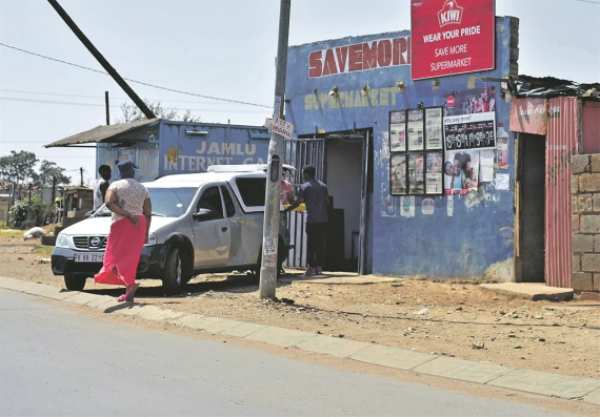Shopping centres and large retail outlets are bleeding. With most having to keep their doors closed during the lockdown period, revenue has slowed to a trickle - or to nothing at all. Even for stores that may trade, feet through the door is becoming a long-forgotten concept as many shoppers turn to online orders and home deliveries.
As a result, in a bid to continue to pay workers’ salaries and remain operational beyond Covid-19, some of South Africa’s biggest retailers, including Edcon, The Foschini Group (TFG) and Pepkor, have publicly announced their intention to not pay monthly rental fees for their stores while they are unable to open in lockdown. Others, such as Dis-Chem, are refusing to pay rent in full.
This is not just a trend seen in South Africa. Internationally, many retail giants are halting rental payments or negotiating reduced rentals with landlords until they can reopen.
This raises the question: Do the usual legal rules apply when navigating the unknown territory of a global crisis such as the Covid-19 pandemic?
Domino effect on retail, property
It might be unsurprising that many retail tenants are unable to meet their commercial lease obligations during lockdown, but it’s important to note that this has a domino effect on the retail and property industry.
Failure to pay rent directly affects the landlord’s ability to meet its obligations with the relevant municipality and financial institutions. As a result, there is likely to be a spate of legal actions once lockdown is lifted. It is recommended that retailers and landlords work together to come up with solutions before legal action is required.
In these unprecedented circumstances, parties should not rely on the law alone. The law does not necessarily have all answers and needs to be applied together with social, ethical and moral considerations.
Moral considerations
Retailers must look at their morals, and not just their bottom-line, and acknowledge the bigger picture and the practical issues that landlords are currently facing. Both landlords and tenants would benefit from negotiating around the rental payments. Both parties need each other, and so it would be best if an agreement can be reached. Legal action should not be the first approach to take - aside from the fact that it is costly and adversarial, some legal options, such as eviction, may not be available during the lockdown since South Africa’s lockdown regulations do not view them as essential services.
It is important for landlords to bear in mind the current retail rental market. The loss of a tenant for non-payment of rent during this period, when the tenant has otherwise been a good one, may not result in a good outcome. The retail rental market was already under pressure prior to the pandemic, with property brokers reporting a perceived increase in retail vacancies owing to economic and political uncertainty. In addition, significant additional formal rental space is due to become available. It is unlikely that there will be sufficient demand for all the space to attract high occupancy levels, so it would be advisable to landlords rather to hold onto good tenants.
Resorting to force majeure
Echoing President Cyril Ramaphosa’s appeal, large businesses should not resort to force majeure (a legal clause protecting both parties from some contractual obligations in extreme circumstances) as not paying rental commitments would result in a ripple effect on all other businesses within that chain.
There are legal options available to all parties, but reliance on these options may have undesired effects in the long term. With the existing pressure on the retail property market prior to Covid-19, failure to pay rent now could ultimately result in further damage to the economy, which in turn will only make things worse.
Relief available
Fortunately, there is relief available. The Department of Trade and Industry has introduced the Covid-19 Block Exemption for the Retail Property Sector to ensure the survival of tenants of retail properties. This enables retailers and landlords the ability to enter into agreements, which would otherwise be restricted under the Competition Act.
This allows landlords to implement payment holidays or rental discounts for their tenants. It also protects tenants as it puts limitations on eviction processes and gives them the right to suspend or adjust clauses in their contracts that would make their business viable during the national disaster. But it is yet to be seen whether this regulation will prove to be effective as qualification for the exemptions may prove to be difficult.
In order for any relief or solution to prove to be effective within the commercial leasing sector, it needs to be implemented on all levels of the food chain with involvement of financial institutions and municipalities. Parties must enter into negotiations in good faith with a holistic view of ensuring that the sector is able to survive the pandemic. Far too many people rely on it for their daily bread.
Article Source: https://www.bizcommunity.com/Article/196/567/203655.html





